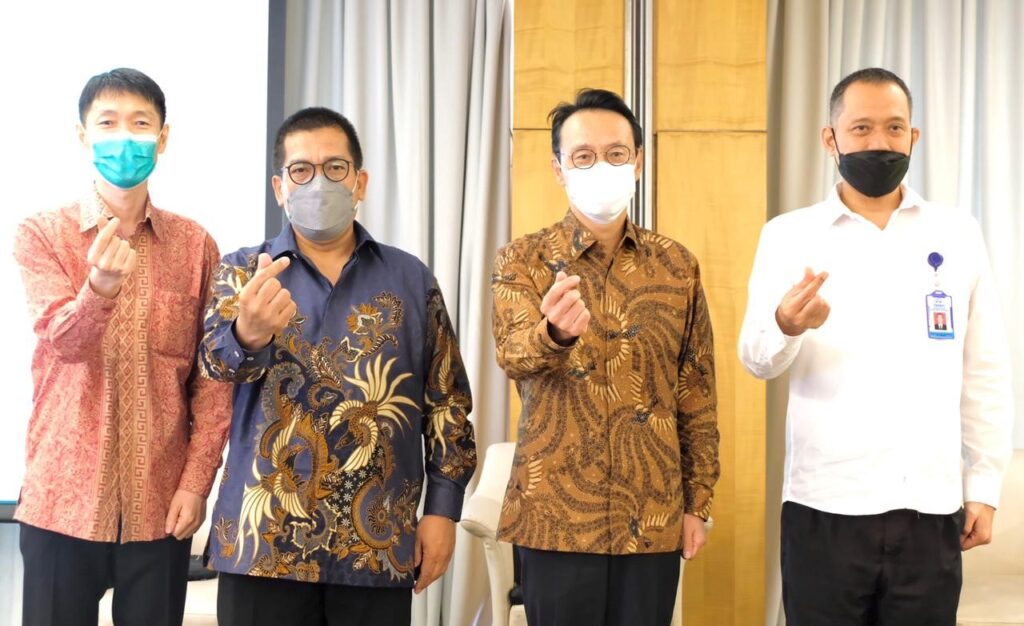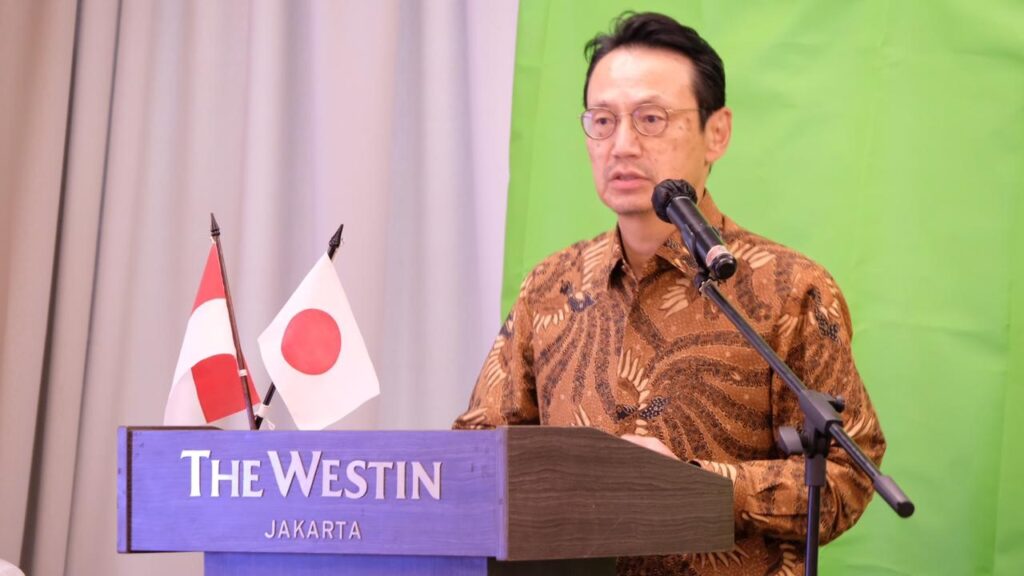
National Population and Family Planning Board (BKKBN), Jakarta/27/05/2021 – The National Population and Family Planning Board (BKKBN) received a mandate from the President of the Republic of Indonesia to become the Implementation Coordinator for the acceleration of stunting prevention in Indonesia. The prevalence of stunting in Indonesia is ranked 108 out of 132 countries based on 2016 Global Nutrition Report data. The target for reducing stunting prevalence in Indonesia is aligned with the global target, namely the World Health Assembly (WHA) target to reduce stunting prevalence by 40% in 2025 from the previous year 2013. It is known from the results of the 2018 Basic Health Research (Riskesdas) that the prevalences of stunting in children under five at the national level decreased by 6.4% over 5 years period, from 37.2% (2013) to 30.8% (2018).

In addition, the target of the Sustainable Development Goals (TPB/SDGs) is to eliminate all forms of malnutrition by 2030. Meanwhile, based on the results of the Indonesian Toddler Nutritional Status Survey (SSGBI) 2019, currently, there has been a decline in the prevalence of stunting from 30, 8% in 2018 to 27.67% in 2019 (Riskesdas 2018).
Head of BKKBN, Dr. (H.C), dr. Hasto Wardoyo, Sp.OG (K) explained,”The target for reducing stunting rates in Indonesia in 2024 is 14%, while Japan has a stunting rate of 7.1% in 2014 (kemkes.go.id, 2020). For this reason, in handling stunting, Indonesia is expected to be able to take best practices from Japan, which is active in improving the nutrition of its people by consuming fish and parenting their toddlers. Japan able to compete in human resources with countries in Europe. In addition, Japan is known as a country that is able to overcome the problems of the elderly,” explained Dr. Hasto.
“One of the focuses of the BKKBN Program is to build resilience and welfare among families. Therefore, the BKKBN carries out its program implementation in accordance with the human life cycle approach whose stages are starting from the fetus, neonatal, infant, school-age children, adolescents, adults, and the elderly. The BKKBN has a specific program created for each stage of the life cycle. Some of the problems that exist in Indonesia that can cause stunting in children include the high number of young pregnant women suffering from anemia, babies born with low weight and length, premature babies, women marrying at a young age of 10-19 years, and pregnancies with less spacing than 2 years or 24 months”, explained Doctor Hasto at the opening of the “Ambassador Talks” event: Redefining Population Dynamic of Elderly by Improving Nutrition Status to Prevent Stunting at Early Ages at the Westin Hotel, Jakarta/27/05/2021.
Doctor Hasto also explained, “The percentage of the elderly population in Indonesia continues to increase, this number is inversely proportional to the percentage of the population of children under five which tends to decrease. The percentage of the elderly population shows that the structure of the Indonesian population is starting to experience aging in 2020 is estimated to reach more than 10 percent. Even from the projections of the Central Statistics Agency, it is estimated that by 2045 the number of elderly people in Indonesia will reach almost one-fifth of the total population of Indonesia. Changes in the age structure occur due to changes in three aspects of the population, namely fertility, mortality, and migration,” added Dr. Hasto.

“The elderly population continues to increase in line with progress in the health sector which is marked by an increase in life expectancy and a decrease in mortality. These demographic developments can have health, economic, and social impacts. For that, we need data related to sustainability as mapping material and policy strategies so that the growth of the elderly population becomes a potential that helps build the nation, “added doctor Hasto.
On the same occasion the Deputy for Training, Research, and Development of the BKKBN Prof. dr. Muhammad Rizal Martua Damanik, MRepSc, Ph.D said, “About 60.96 percent of the elderly still have a partner or are married in 2020, while the rest do not have a partner, either because they are not married, divorced, or live as widows who are left behind by their husbands. There is no significant difference between the percentage of elderly marital status in urban and rural areas (60.42 percent versus 61.56 percent). Based on gender, the percentage of elderly married men (81.77 percent) is twice the percentage of married women (41.97 percent). This condition is possible because men usually cannot meet their own needs, so they need a companion to help them. It can be said that there is a tendency for older men to remarry after their partner dies,” added Rizal
Mr. Tri Purnajaya Deputy Chief of Mission of the Embassy of Indonesia in Tokyo, Japan said, “Population Comparison by Age between Indonesia and Japan; based on the results of the 2020 Population Census, the total population of Indonesia is 270.20 million, of which the productive age dominates as much as 70.7 percent of the total population; ages 0-14 as many as 19.6 percent of the total population; and age over 65 as much as 9.8 percent of the total population, while based on the Statistics Bureau Home Japan 2021 the total population of Japan is 125.36 million, of which the number of productive age of the Japanese population is less than the productive age of the Indonesian population, which is only 59.2 percent of the total population of Japan. Aged 0-14 years as much as 12 percent of the total population; and 28.8 percent over the age of 65 years, this value is greater than the number of elderly people in Indonesia.
Mr. Kenji Kanasugi, Ambassador of Japan to the Republic of Indonesia added, “Although the population of Japan will experience a decline in the ratio of elderly people, especially those aged 75 years and over, it is projected that this age group will continue to increase,” added Kenji.
The purpose of the “Ambassador Talks” event is a form of cooperation between the BKKBN and Japan, including; (1) strengthening BKKBN cooperation with Japan; (2) work together to address the problem of an aging population; (3) working together to reduce stunting; (4) developing opportunities for co-creation and innovation related to the proud golden program, education, training, technology, and knowledge.